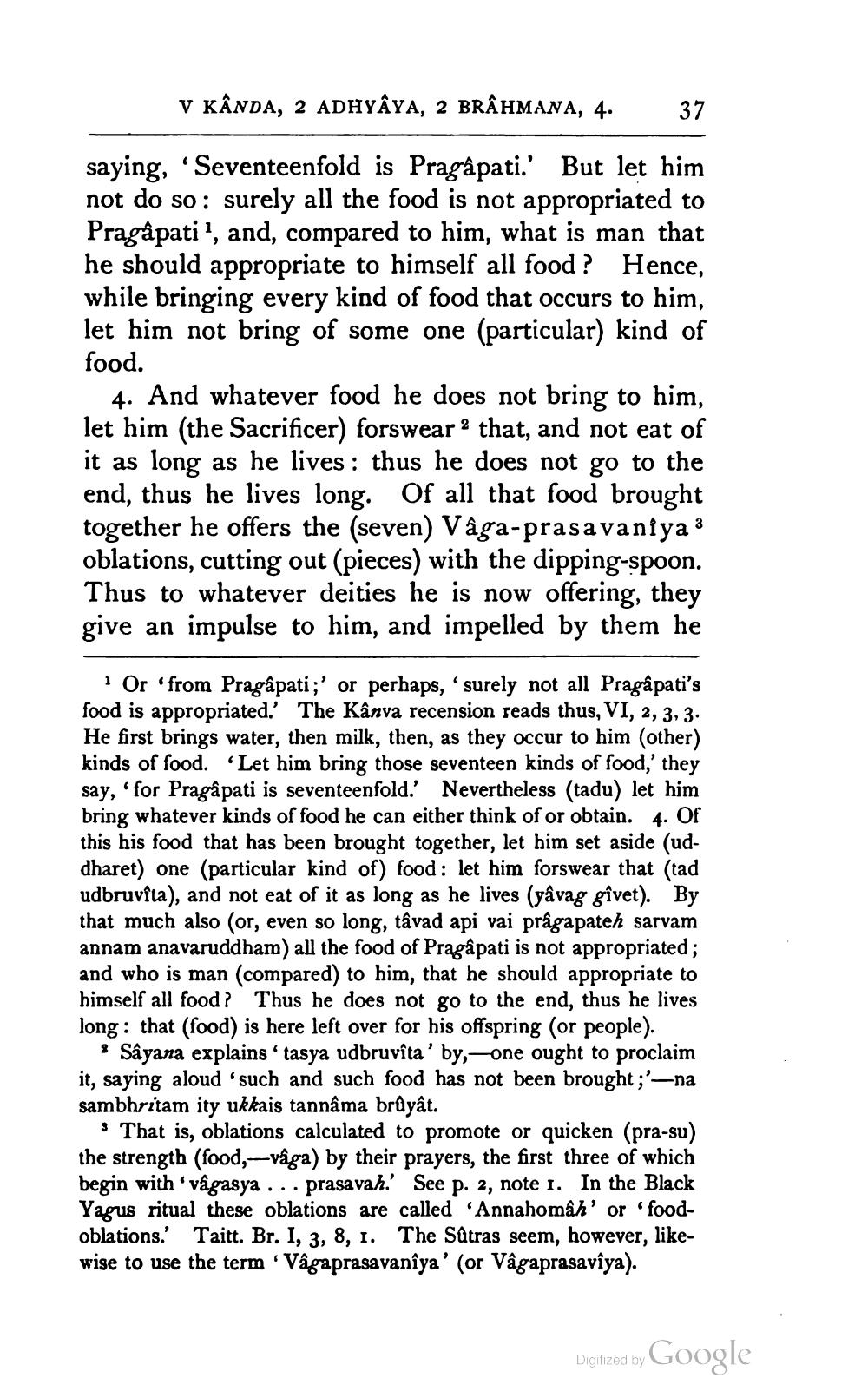________________
V KÂnda, 2 ADHYAYA, 2 BRÂHMANA, 4.
37
saying, 'Seventeenfold is Pragậpati.' But let him not do so: surely all the food is not appropriated to Pragâpati?, and, compared to him, what is man that he should appropriate to himself all food ? Hence, while bringing every kind of food that occurs to him, let him not bring of some one (particular) kind of food.
4. And whatever food he does not bring to him, let him (the Sacrificer) forswear ? that, and not eat of it as long as he lives : thus he does not go to the end, thus he lives long. Of all that food brought together he offers the (seven) Vâga-prasavaniya 3 oblations, cutting out (pieces) with the dipping-spoon. Thus to whatever deities he is now offering, they give an impulse to him, and impelled by them he
? Or from Pragâpati;' or perhaps, surely not all Pragâpati's food is appropriated.' The Kânva recension reads thus, VI, 2, 3, 3. He first brings water, then milk, then, as they occur to him (other) kinds of food. “Let him bring those seventeen kinds of food,' they say, 'for Pragâpati is seventeenfold.' Nevertheless (tadu) let him bring whatever kinds of food he can either think of or obtain. 4. Of this his food that has been brought together, let him set aside (uddharet) one (particular kind of) food: let him forswear that (tad udbruvîta), and not eat of it as long as he lives (yâvag givet). By that much also (or, even so long, tâvad api vai prâgapateh sarvam annam anavaruddham) all the food of Pragâpati is not appropriated; and who is man (compared) to him, that he should appropriate to himself all food? Thus he does not go to the end, thus he lives long: that (food) is here left over for his offspring (or people).
* Sâyana explains' tasya udbruvîta' by-one ought to proclaim it, saying aloud 'such and such food has not been brought;'-na sambhritam ity ukkais tannâma brûyât.
3 That is, oblations calculated to promote or quicken (pra-su) the strength (food,-vâga) by their prayers, the first three of which begin with vâgasya ... prasavah.' See p. 2, note 1. In the Black Yagus ritual these oblations are called 'Annahomâh' or .foodoblations.' Taitt. Br. I, 3, 8, 1. The Sätras seem, however, likewise to use the term Vâgaprasavanîya' (or Vâgaprasaviya).
Digitized by Google




